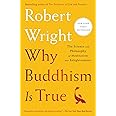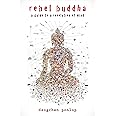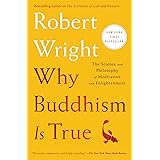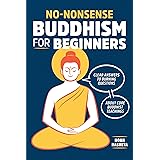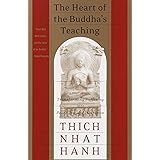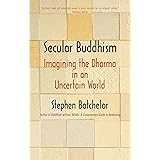
Enjoy fast, free delivery, exclusive deals, and award-winning movies & TV shows with Prime
Try Prime
and start saving today with fast, free delivery
Amazon Prime includes:
Fast, FREE Delivery is available to Prime members. To join, select "Try Amazon Prime and start saving today with Fast, FREE Delivery" below the Add to Cart button.
Amazon Prime members enjoy:- Cardmembers earn 5% Back at Amazon.com with a Prime Credit Card.
- Unlimited Free Two-Day Delivery
- Streaming of thousands of movies and TV shows with limited ads on Prime Video.
- A Kindle book to borrow for free each month - with no due dates
- Listen to over 2 million songs and hundreds of playlists
- Unlimited photo storage with anywhere access
Important: Your credit card will NOT be charged when you start your free trial or if you cancel during the trial period. If you're happy with Amazon Prime, do nothing. At the end of the free trial, your membership will automatically upgrade to a monthly membership.
Buy new:
-30% $11.96$11.96
Ships from: Amazon.com Sold by: Amazon.com
Save with Used - Good
$9.64$9.64
Ships from: Amazon Sold by: The BAP Goods

Download the free Kindle app and start reading Kindle books instantly on your smartphone, tablet, or computer - no Kindle device required.
Read instantly on your browser with Kindle for Web.
Using your mobile phone camera - scan the code below and download the Kindle app.

OK
 Audible sample Sample
Audible sample Sample 


Buddhism Without Beliefs: A Contemporary Guide to Awakening Paperback – March 1, 1998
Purchase options and add-ons
In this simple but important volume, Stephen Batchelor reminds us that the Buddha was not a mystic who claimed privileged, esoteric knowledge of the universe, but a man who challenged us to understand the nature of anguish, let go of its origins, and bring into being a way of life that is available to us all. The concepts and practices of Buddhism, says Batchelor, are not something to believe in but something to do—and as he explains clearly and compellingly, it is a practice that we can engage in, regardless of our background or beliefs, as we live every day on the path to spiritual enlightenment.
- Print length144 pages
- LanguageEnglish
- PublisherRiverhead Books
- Publication dateMarch 1, 1998
- Dimensions8.5 x 5.43 x 0.3 inches
- ISBN-109781573226561
- ISBN-13978-1573226561
The Amazon Book Review
Book recommendations, author interviews, editors' picks, and more. Read it now.
Frequently bought together
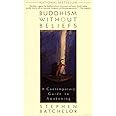
Similar items that may ship from close to you
Editorial Reviews
Review
"Buddhism Without Beliefs is the kind of finely written primer about the concepts of Buddhism that even a heathen like me can appreciate and understand. For the non-Buddhist, or the aspiring Buddhist, it will be of much assistance. Filled with compassion, lucidly written, this is a book that explains much about an ancient, ever-living philosophy that has much to offer the stunned searchers of truth in our chaotic age of modernity." —Oscar Hijuelos, author of Mr. Ives' Christmas and The Mambo Kings Play Songs of Love
"Radiant in its clarity, Buddhism Without Beliefs reminds us not just of Buddhism's true nature, but of our own as well. Freeing us from the notion of Buddhism as a religion, Stephen Batchelor shows us how necessary the Buddha's teachings are in today's world. It may not be what he intended, but he has made a believer out of me." —Mark Epstein, M.D., author of Thoughts Without a Thinker: Psychotherapy from a Buddhist Perspective
"Though he is a former monk in both the Zen and Tibetan traditions, Batchelor is now associated with a nondenominational Buddhist community in England. He deliberately eschews elitist, monastic Buddhist traditions, which often make enlightenment appear all but impossible to attain. Throughout, simple meditation exercises acquaint readers with Buddhist principles that illuminate 'the nature of the human dilemma and a way to its resolution.'" —Publishers Weekly
About the Author
Product details
- ASIN : 1573226564
- Publisher : Riverhead Books; Reprint edition (March 1, 1998)
- Language : English
- Paperback : 144 pages
- ISBN-10 : 9781573226561
- ISBN-13 : 978-1573226561
- Item Weight : 3.87 ounces
- Dimensions : 8.5 x 5.43 x 0.3 inches
- Best Sellers Rank: #50,630 in Books (See Top 100 in Books)
- #76 in Philosophy Movements (Books)
- #182 in Buddhism (Books)
- Customer Reviews:
About the author

Stephen Batchelor is a former monk in the Tibetan and Zen traditions. He has translated Shantideva's A Guide to the Bodhisattva's Way of Life and is the author of Alone with Others, The Faith to Doubt, The Tibet Guide, The Awakening of the West, Buddhism without Beliefs, and Verses from the Center. He is a contributing editor of Tricycle magazine, a guiding teacher at Gaia House Retreat Centre, and cofounder of Sharpham College for Buddhist Studies and Contemporary Inquiry in Devon, England. He lives in southwest France and lectures and conducts meditation retreats worldwide.
Customer reviews
Customer Reviews, including Product Star Ratings help customers to learn more about the product and decide whether it is the right product for them.
To calculate the overall star rating and percentage breakdown by star, we don’t use a simple average. Instead, our system considers things like how recent a review is and if the reviewer bought the item on Amazon. It also analyzed reviews to verify trustworthiness.
Learn more how customers reviews work on Amazon-
Top reviews
Top reviews from the United States
There was a problem filtering reviews right now. Please try again later.
This book is not an introduction to Buddhism, a Buddhism 101. If you're looking for an overview of the beliefs and practices of Buddhists, there are many more appropriate texts available. My personal recommendation would be Lama Surya Das' Awakening the Buddha Within : Tibetan Wisdom for the Western World. In contrast, the book under discussion is a provocative attempt to reinterpret and (re)introduce the core of the Buddhist teachings to the west, in a form easily understood and assimilated by the western student. Just as Christ wasn't a Christian, the Buddha Sakayamuni was not a Buddhist: he was a teacher, a spritual friend. His teachings have been filtered through thousands of years of history an individual cultural circumstances. This is one more take. The book resonates strongly with me. Perhaps it will with you, too.
Prior to reading this book, I always instinctively self-identified as an agnostic, with perhaps a curious interest in Buddhism. I am a psychologist by trade, and therefore a kind of scientist, and I prefer to interact with my environment from the perspective of using the scientific method to filter out things that are not true and clarify things that are slightly less true. I will spare you any unnecessary details about my personal journey from a theistic religion to a kind of nontheistic, optimistic, humanist, agnosticism.
I will, however, point out the work of Dr. James Fowler, a kind of hybrid psychologist-theologian, who wrote extensively during his career about the stages of faith, the faith-identity triad, as it parallels to the stages of human development. This is relevant to this book because he outlines six stages of the way a person interacts with faith, and faith here is not necessarily meaning "a religion" or faith in unproven things, but rather the sort of cohesive structure with which each and every person uniquely views the universe and its meaning. Bear with me, this is relevant.
As a person progresses along their life, they will evolve along certain relatively predictable stages of personal development. Of course these aren't ranks, or a kind of leveling system like in a video game. The person *has* to integrate certain things in order to move to different ways of integration and this can't be forced, or even taught, but it can be guided. Anyway, how a person interacts with their religious beliefs, or their "faith" in Fowler's sense, is directly related to this stage of personal development. Below is a brief list of the Stages of Faith, and they loosely correspond with age, however a 65 year old person could very easily be a Stage 3.
***
The Stages of Faith:
Stage 0 - "Primal or Undifferentiated" faith (birth to 2 years), is characterized by an early learning of the safety of their environment (i.e. warm, safe and secure vs. hurt, neglect and abuse). If consistent nurture is experienced, one will develop a sense of trust and safety about the universe and the divine. Conversely, negative experiences will cause one to develop distrust with the universe and the divine. Transition to the next stage begins with integration of thought and languages which facilitates the use of symbols in speech and play.
Stage 1 - "Intuitive-Projective" faith (ages of three to seven), is characterized by the psyche's unprotected exposure to the Unconscious, and marked by a relative fluidity of thought patterns. Religion is learned mainly through experiences, stories, images, and the people that one comes in contact with.
Stage 2 - "Mythic-Literal" faith (mostly in school children), stage two persons have a strong belief in the justice and reciprocity of the universe, and their deities are almost always anthropomorphic. During this time metaphors and symbolic language are often misunderstood and are taken literally.
Stage 3 - "Synthetic-Conventional" faith (arising in adolescence; aged 12 to adulthood) characterized by conformity to religious authority and the development of a personal identity. Any conflicts with one's beliefs are ignored at this stage due to the fear of threat from inconsistencies.
Stage 4 - "Individuative-Reflective" faith (usually mid-twenties to late thirties) a stage of angst and struggle. The individual takes personal responsibility for his or her beliefs and feelings. As one is able to reflect on one's own beliefs, there is an openness to a new complexity of faith, but this also increases the awareness of conflicts in one's belief.
Stage 5 - "Conjunctive" faith (mid-life crisis) acknowledges paradox and transcendence relating reality behind the symbols of inherited systems. The individual resolves conflicts from previous stages by a complex understanding of a multidimensional, interdependent "truth" that cannot be explained by any particular statement.
Stage 6 - "Universalizing" faith, or what some might call "enlightenment." The individual would treat any person with compassion as he or she views people as from a universal community, and should be treated with universal principles of love and justice.
***
The reason why this is relevant to this book, and the negative reviews, is that people who find Batchelor to be a heretical Buddhist are roughly at a Stage 3 of personal development. We can all probably call to mind many such Stage 3 people of varying religions. Neither Gautama Buddha nor Batchelor can "force" anyone into their viewpoint (anymore than a psychologist can force someone into another stage of development), and when they read this work, they will most likely be offended, feeling the need to defend their faith-identity triad from a perceived threat. And this is a fairly normal response, to be honest. I'm not suggesting these people are "incorrect" either, but it's interesting to evaluate their defense of the organized religion of Buddhism in light of the understandings that Dr. Fowler contributed, and arguably, that Stephen Batchelor contributed with this work.
In this sense I think that it is a wonderful thing that Buddhism has come to the United States, because we are many things, including being generally pragmatic and utilitarian. We are also influenced by the tradition of material realism and the scientific method, some more than others. This at times comes off to traditionalists as being irreverent or flippant, but it comes down to the burden of proof. What is the proof that reincarnation exists? Or that anyone's deity exists, including the deity of the major monotheistic faiths as well as the less acknowledged Buddhist deities... Kwan Yin, the Medicine Buddha, etc.? What is your evidence that karma is some intergalactic referee blowing the whistle and giving you a yellow card? Which is not to say that none of these things exist, but it is to say that we each have the responsibility to be present in our own lives, to be little objective scientists, questioning everything, and choosing to move beyond or remain ambiguous (until better evidence presents itself) about those things that are unproven or have been proven untrue.
And this is what this book is about. Building yourself a light. Learning to question your existence with friendly curiosity, and not needing to be bound by the social control valves of religions.
When Batchelor talks about being “without beliefs,” what he means is separating vital teaching from formal orthodoxy. In the case of Buddhism, he goes so far as to suggest that the notions of rebirth and karma (the idea that our actions influence the course of future lives) may do more harm than good, and that they should be left behind as relics of another time and culture.
In place of such creeds, Batchelor focuses on what has always been the heart of Buddhist instruction: the four noble truths, or as he strikingly calls them, the four ennobling truths. These include the fact of our dis-ease with life—what has often been called “suffering” and what Batchelor refers to as “anguish”—followed by the fact of what causes anguish and the fact that there is a way to relieve anguish, and finally a path that allows us to realize and embody that relief. Batchelor also addresses emptiness, the teaching that all people and things are connected in an ultimate sense.
"Buddhism Without Beliefs" reminds me of the book of James in the New Testament, in that it is intensely pragmatic, and unsparing in its view of our human faults. It is not, however, without hope; Batchelor is no more upset with his readers than is a doctor diagnosing an illness. Identifying the problem is simply the necessary first step to curing it.
The key words in Batchelor’s vision of Buddhism are creativity and freedom. Through practice of the teachings of the Buddha, we seek to obtain freedom from anguish, which is to say, freedom from the wish that the world be other than the way it is. In this freedom, we find the ability to creatively reimagine our lives and produce novel expressions of compassion, among others.
This book is short and stark; hardly a sentence in it is without import. (Notwithstanding some of Batchelor’s early fulminating against religious institutions, which goes on just a bit too long.) Many of Batchelor’s insights are startling. He is not proposing something new, but artfully clarifying something very old. Although this book contains a few basic meditation exercises, it is not a book about meditation. And although it makes reference to the life and teachings of a figure called the Buddha, it is, oddly, not a book about Buddhism. It a book about a profoundly human problem, and a solution to that problem that can be embraced by anyone, regardless of age or nationality or faith.
To achieve true understanding, of course, would entail leaving behind the need for this book, as one would leave behind a raft after crossing a river. But as long as we find ourselves on the river—which most of us do, most of the time—we need rafts; as long as we are adrift we need guides; and Batchelor is an exemplary one.
~
Top reviews from other countries
It is also a defence and exploration of agnosticism, secularism, individualism and creativity - and how these can make Buddhism continue to evolve in contemporary society. I would recommend this book to any Buddhist or non-Buddhist interested in philosophy, awakening, and how to live a meaningful life.




